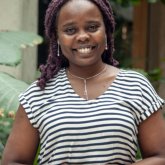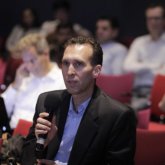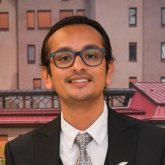Effectively understanding and mitigating financial risks associated with climate change is important for sustainable economic decision-making. Climate finance is critical in addressing physical risks by quantifying economic losses from climate-related disasters and developing financial instruments that enhance market resilience. As global financial markets increasingly recognise the importance of climate risks, central banks and regulatory bodies demand improved assessments of the disaster risk of local assets and supply chains.
Advancements in geospatial analytics, climate modelling, and financial risk assessment now allow a more precise evaluation of climate-induced risks. Integrating these disciplines enables a deeper understanding of sectoral and global financial vulnerabilities and supports the development of more effective risk management strategies.
Despite growing attention to climate-related financial risks, significant knowledge gaps remain, particularly in the availability and granularity of asset-level data. Many financial institutions lack precise information on the physical location of their assets or those of the companies they invest in, which limits the ability to assess exposure to localized hazards. This challenge is compounded by the difficulty of linking geospatial data with asset ownership, making it hard to evaluate how physical risks translate into financial vulnerabilities at the institutional level.
This PhD research aims to develop a holistic modelling framework for assessing financial risks associated with climate-related hazards at the granularity of asset-level data. Therefore, you will be integrating geospatial data with financial and climate information. You will establish a new protocol for linking asset location to ownership information and for quantifying potential financial losses from various climate-related disasters, the latter being considered both individually or as multi–hazardous events. As such, you will contribute to more accurate financial risk assessments of extreme events linked to climate change, equipping investors, policymakers, and financial institutions with actionable insights for informed decision-making.
Information and application
For more information about the position, you may contact Dr Adriano Barasal Morales (email: a.barasalmorales@utwente.nl). You are also invited to visit our homepage.
Please submit your application before 18 May 2025. Your application should include:
- A motivation letter (maximum 2 pages of A4), emphasizing your specific interest, qualifications, motivation to apply for this position, and the environmental issue or change you want to address in your research
- Curriculum Vitae (including a list of all courses attended and grades obtained and the names and contact information of two references)
- A short description (150 – 250 words) of your last significant result (MSc thesis/final project report/EngD thesis) and a list of publications
Online (first round) job interviews will take place in the week of 9 – 13 June, 2025. Possible second-round interviews are expected to take place in the second week of July.
About the department
The Department of Applied Earth Sciences combines earth scientific knowledge with dynamic modelling and advanced remote sensing, to analyse earth systems and processes in space and time. Our goal is to contribute to global challenges concerning future demands for earth resources and to help reduce disaster risk and the impact of natural hazards on communities living in changing environments.
About the organisation
The Faculty of Geo-Information Science and Earth Observation (ITC) provides international postgraduate education, research and project services in the field of geo-information science and earth observation. Our mission is capacity development, where we apply, share and facilitate the effective use of geo-information and earth observation knowledge and tools for tackling global wicked problems. Our purpose is to enable our many partners around the world to track and trace the impact – and the shifting causes and frontiers – of today’s global challenges. Our vision is of a world in which researchers, educators, and students collaborate across disciplinary and geographic divides with governmental and non-governmental organisations, institutes, businesses, and local populations to surmount today’s complex global challenges and to contribute to sustainable, fair, and digital societies.





